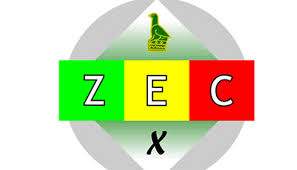The current ruling ZANU-PF government has in recent years been accused of rigging elections or unfair conduct. This is not a phenomenon unique to Zimbabwe, across the world; there are many countries where elections are taking place with a cloud of rigging allegations.
In major democracies like the United States, there are reports that political parties are involved in rigging. Last week the United States Supreme Court refused to hear a gerrymandering case which is referred back to the lower court for determination. A few days earlier, the United States Supreme Court decision of 5-4 upheld the state of Ohio’s system of purging from the voters’ roll that the state feels are outdated effectively promoting voter suppression.
Free, fair, and credible elections are essential for the democratic process, and Zimbabwe implemented notable requirements for them ahead of the 30 July 2018 harmonised elections. For instance, a new voters’ roll was produced where over 5.6 million voters are registered and the election voting system is now polling station-based rather than ward-based.
However, the effectiveness of inherited and long unchanged rules, administration, and practice of elections changes over time as society changes, the effects of rules can drift.
In Zimbabwe, there are allegations of electoral irregularities on the scale commonly seen in competitive authoritarian states or semi democracies where voters go to vote when there are already allegations of rigging.
At present, there is fierce debate over the electronic voters’ roll that that ZEC has distributed to political parties, candidates, and other stakeholders where it does not contain photographs of voters.
Surprisingly, the same photographs will only suddenly appear on the roll to be used on voting day. Although section 9 of Statutory Instrument 85 of 2017- Electoral (Voter Registration) Regulations, 2017 provide that: “The CEO shall compile a voters’ roll for each polling area showing the voter’s name, DOB, sex, ID number, physical address, and photograph.”
It does not require a lawyer to interpret that PHOTOGRAPHS are required as part of the voters’ roll. However, as noted above, the Zimbabwe Electoral Commission (ZEC) argues that voters’ roll with photographs relate only to a voters’ roll to be kept at a polling station.
Turning on to the constituency boundary review, the process has not taken place since before the 2008 disputed elections respond to the statute and its implementation timing is often politically influenced. However, there have been reports of gerrymandering in Mt Pleasant, in Harare, and Mazowe South Constituencies.
Elsewhere, the robustness of electoral finance regulation is problematic at the national level. The robustness of electoral finance regulation is problematic at the national level. The Political Parties Act of 2001 was sponsored chiefly to restrict parties from reserving foreign funding without any local viable financing model for political parties that fail to garner 5 percent of total parliamentarians.
Electoral administration is chiefly run by commissioners headed by a Chairperson who is supposed to be independent of government and politicians. Electoral body ZEC is supposed to be an independent body that manages elections and advises election procedures in an independent but however, does not necessarily register political parties neither does it regulate electoral finance as other electoral bodies in the region.
The media should be a pluralistic one, handling the reporting of elections and campaigns in a reasonably fair and diverse way. There should be no direct government or any other political party interference in the reporting of elections or campaigns designed to secure partisan advantages for the incumbents or for powerful parties. However, the Zimbabwean media has remained polarised with the state media openly supporting the incumbent government whilst the independent media has mainly been supporting the opposition parties.
